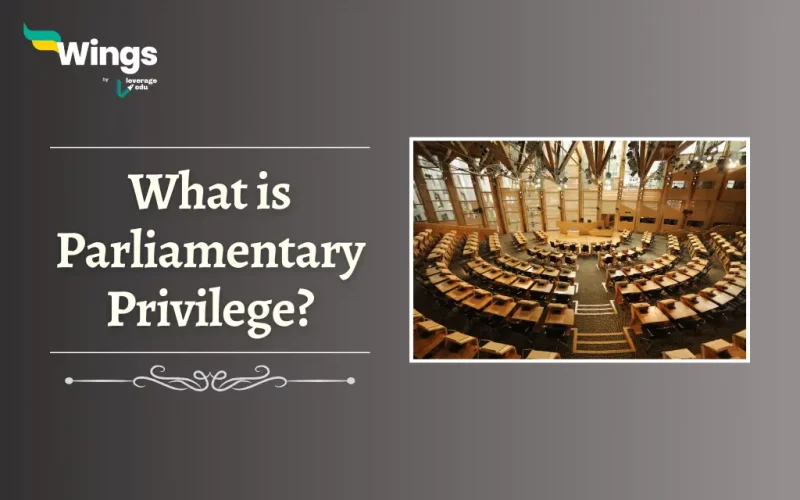Parliamentary Privileges include specific rights, immunities, and exemptions given to the two Houses of Parliament, their committees, and their members. Furthermore, these Privileges are important to protect the independence and usefulness of their actions. However, if these privileges did not exist, the Houses would struggle to maintain their authority, dignity, and honour, and their members would face obstacles in fulfilling their parliamentary duties. Surprisingly, the President of India does not enjoy these Parliamentary Privileges. Read on to learn more about Parliamentary Privilege, the 2 Classifications of these privileges and the Breach.
Classification of the Parliamentary Privilege
Additionally, Parliamentary Privileges are classified into 2 categories:
1. Individual Privileges
In addition, individual members of Parliament enjoy certain privileges:
- Immunity from arrest during Parliament sessions and 40 days before and after a session, but only in Civil cases. Moreover, this immunity does not apply to criminal cases or preventive detention.
- Freedom of Speech within Parliament, without fear of legal repercussions.
- Members cannot be held accountable in court for their speech or votes in Parliament or its committees.
- Although this freedom is subject to Constitutional provisions and Parliamentary rules.
- In addition, exemption from jury service and the ability to refuse to give evidence or appear as a witness in court while Parliament is in session.
Also Read: The Basic Structure Doctrine: Safeguarding Constitutional Integrity
2. Collective Privileges
The collective privileges of each House of Parliament have these key aspects:
- The House has the only right to publish its reports, debates, and proceedings. Moreover, it has the power to prevent others from doing the same.
- The 44th Amendment Act of 1978 brought back the Freedom of the press to report accurately on Parliamentary proceedings without prior authorisation from the House, except for secret sittings.
- Moreover, the House retains the authority to bar outsiders from its proceedings and convene secret sessions to meditate on sensitive issues.
- It is important to establish rules governing its conduct and the management of its affairs, as well as to judge related matters.
- The House is empowered to discipline its members and outsiders for breaches of its privileges or contempt. This is done through various measures such as reprimand, admonition, imprisonment, suspension, or expulsion (in the case of members).
- Every member is entitled to timely updates about the apprehension, detainment, sentencing, incarceration, and liberation of a fellow member.
- It has the authority to launch investigations, summon witnesses, and request relevant documents and records.
- Additionally, Judicial bodies are barred from scrutinising the activities of a legislative body or its subcommittees.
- Neither members nor non-members may be charged, nor may any legal documentation (civil or criminal) be delivered within the legislative premises without the consent of the Presiding officer.
Also Read: What is the Difference between Parliamentary and Presidential System of Government?
What is a Breach of Parliamentary Privilege?
Any action or failure that obstructs the functioning of a House of Parliament, its members, or its officers, or that undermines the dignity, authority, and honour of the House, is considered contemptuous behaviour.
- While the terms “breach of privilege” and “contempt of the House” are often used interchangeably, they carry distinct meanings.
- Usually, a breach of privilege may also constitute Contempt of the House, and vice versa.
- However, contempt of the House includes a broader scope of offences.
- It is possible to commit contempt of the House without specifically breaching a privilege.
- Actions that do not breach a specific privilege but still offend the dignity and authority of the House are also regarded as contemptuous.
- For instance, disobeying a lawful order of the House may not breach a privilege but can still be punished as contempt of the House.
Related Blogs
Lastly, we hope you liked our blog and gained an understanding of What is Parliamentary Privilege. Moreover, you may even read more blogs and empower yourself with knowledge regarding Civics and Polity!
 One app for all your study abroad needs
One app for all your study abroad needs













